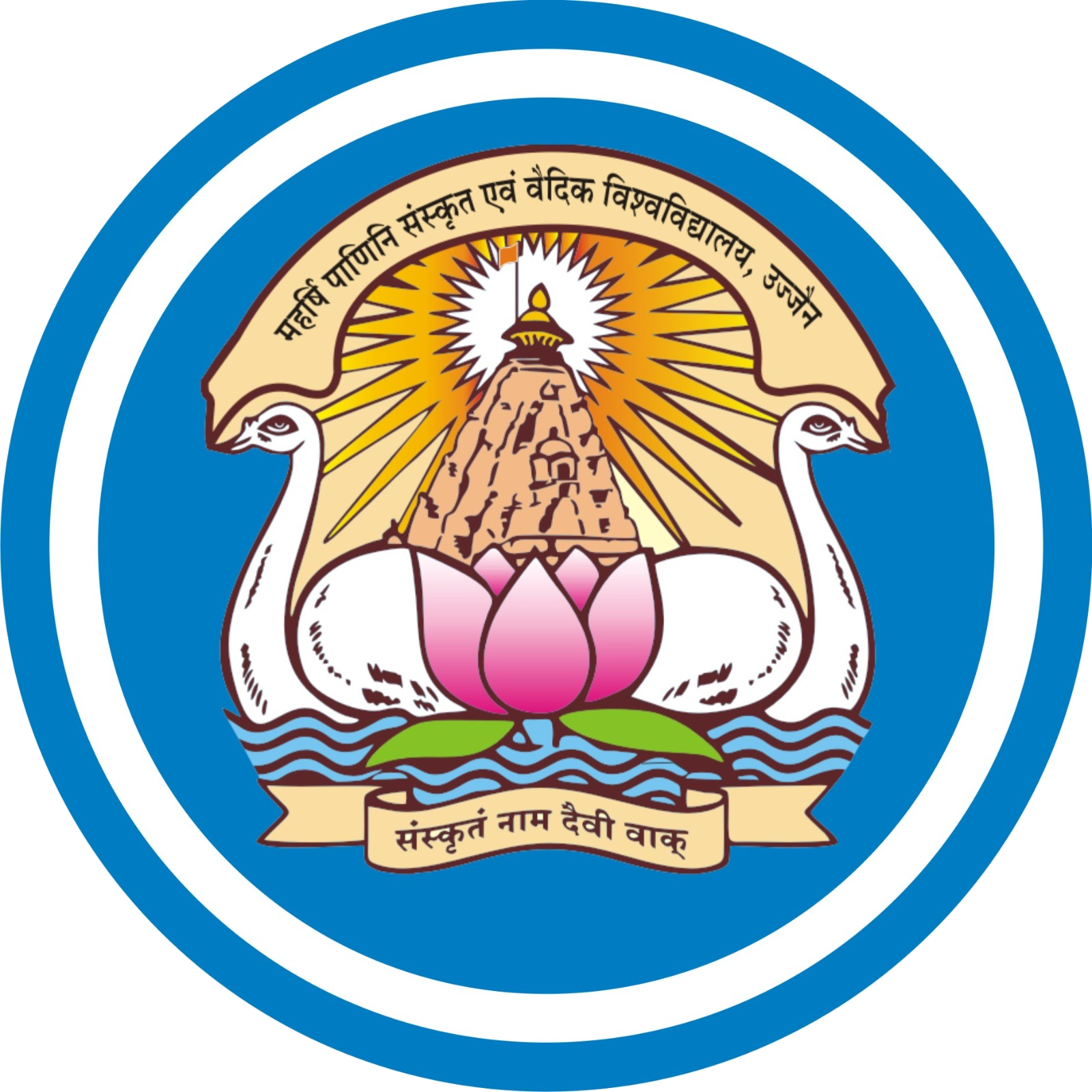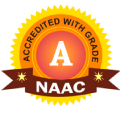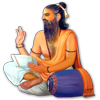BASIC INFORMATION
Name and Address of the University |
|
| Name | MAHARSHI PANINI SANSKRIT EVAM VEDIC VISHWAVIDYALAYA |
| Address | Maharshi Panini Sanskrit Evam Vedic Vishwavidyalaya, Dewas Road, Ujjain, Madhya Pradesh, Pin - 456010 |
| City | Ujjain |
| State | Madhya Pradesh |
| Pin | 456010 |
| Website | www.mpsvv.ac.in |
Contacts for Communication |
|||||
| Designation | Name | Telephone with STD Code | Mobile | Fax | |
| Vice Chancellor | Vijayakumar Cg. | 0734-2991006 | 8827087772 | - | |
| IQAC / CIQA coordinator | Tulasidas Parauha | 0734-222356 | 9479479986 | - | |
Nature of University |
|
| Nature of University | State University |
Type of University |
|
| Type of University | Affiliating |
Establishment Details |
|
| Establishment Date of the University | 15-08-2008 |
| Status Prior to Establishment,If applicable | |
Recognition Details |
||
Date of Recognition as a University by UGC or Any Other National Agency : |
||
| Under Section | Date | View Document |
| 2f of UGC | 30-01-2010 | View Document |
| 12B of UGC | ||
University with Potential for Excellence |
|
| Is the University Recognised as a 'University with Potential for Excellence (UPE)' by the UGC? | No |
Location, Area and Activity of Campus |
|||||||
| Campus Type | Address | Location * | Campus Area in Acres | Built up Area in sq.mts. | Programmes Offered | Date of Establishment | Date of Recognition by UGC/MHRD |
| Main campus | Maharshi Panini Sanskrit Evam Vedic Vishwavid yalaya, Dewas Road, Ujjain, Madhya Pradesh, Pin - 456010 | Urban | 25 | 1387.44 | Twenty seven | ||
| Regional Centres | Shri Ramanuj Sanskrit Parisar, Lakshmanbag, Rewa. | Urban | 1 | 700 | Five | 05-11-2023 | 05-12-2023 |
ACADEMIC INFORMATION
Affiliated Institutions to the University
| Type of Colleges | Permanent | Temporary | Total |
|---|---|---|---|
| Arts/Humanities/Social Sciences | 0 | 20 | 20 |
Furnish the Details of Colleges of University
| Number | |
| Constituent Colleges | 0 |
| Affiliated Colleges | 20 |
| Colleges Under 2(f) | 4 |
| Colleges Under 2(f) and 12B | 3 |
| NAAC Accredited Colleges | 0 |
| Colleges with Potential for Excellence(UGC) | 0 |
| Autonomous Colleges | 0 |
| Colleges with Postgraduate Departments | 16 |
| Colleges with Research Departments | 0 |
| University Recognized Research Institutes/Centers | 0 |
Is the University Offering any Programmes Recognised by any Statutory Regulatory Authority (SRA)
|
: Yes | |||||
Details Of Teaching & Non-Teaching Staff Of University
| Teaching Faculty | |||||||||||||
| Professor | Associate Professor | Assistant Professor | |||||||||||
| Male | Female | Others | Total | Male | Female | Others | Total | Male | Female | Others | Total | ||
| Sanctioned | 5 | 10 | 15 | ||||||||||
| Recruited | 0 | 0 | 0 | 0 | 1 | 0 | 0 | 1 | 6 | 1 | 0 | 7 | |
| Yet to Recruit | 5 | 9 | 8 | ||||||||||
| On Contract | 0 | 0 | 0 | 0 | 0 | 0 | 0 | 0 | 25 | 6 | 0 | 31 | |
| Non-Teaching Staff | |||||||||||||
| Male | Female | Others | Total | ||||||||||
| Sanctioned | 17 | ||||||||||||
| Recruited | 6 | 0 | 0 | 6 | |||||||||
| Yet to Recruit | 11 | ||||||||||||
| On Contract | 16 | 4 | 0 | 20 | |||||||||
| Technical Staff | |||||||||||||
| Male | Female | Others | Total | ||||||||||
| Sanctioned | 2 | ||||||||||||
| Recruited | 0 | 0 | 0 | 0 | |||||||||
| Yet to Recruit | 2 | ||||||||||||
| On Contract | 2 | 0 | 0 | 2 | |||||||||
Qualification Details of the Teaching Staff
| Permanent Teachers | |||||||||||
| Highest Qualification | Professor | Associate Professor | Assistant Professor | ||||||||
| Male | Female | Others | Male | Female | Others | Male | Female | Others | Total | ||
| D.sc/D.Litt/LLD/DM/MCH | 0 | 0 | 0 | 0 | 0 | 0 | 0 | 0 | 0 | 0 | |
| Ph.D. | 0 | 0 | 0 | 1 | 0 | 0 | 6 | 1 | 0 | 8 | |
| M.Phil. | 0 | 0 | 0 | 0 | 0 | 0 | 0 | 0 | 0 | 0 | |
| PG | 0 | 0 | 0 | 1 | 0 | 0 | 6 | 1 | 0 | 8 | |
| UG | 0 | 0 | 0 | 0 | 0 | 0 | 0 | 0 | 0 | 0 | |
| Temporary Teachers | |||||||||||
| Highest Qualification | Professor | Associate Professor | Assistant Professor | ||||||||
| Male | Female | Others | Male | Female | Others | Male | Female | Others | Total | ||
| D.sc/D.Litt/LLD/DM/MCH | 0 | 0 | 0 | 0 | 0 | 0 | 0 | 0 | 0 | 0 | |
| Ph.D. | 0 | 0 | 0 | 0 | 0 | 0 | 19 | 3 | 0 | 22 | |
| M.Phil. | 0 | 0 | 0 | 0 | 0 | 0 | 1 | 0 | 0 | 1 | |
| PG | 0 | 0 | 0 | 0 | 0 | 0 | 25 | 6 | 0 | 31 | |
| UG | 0 | 0 | 0 | 0 | 0 | 0 | 0 | 0 | 0 | 0 | |
| Part Time Teachers | |||||||||||
| Highest Qualification | Professor | Associate Professor | Assistant Professor | ||||||||
| Male | Female | Others | Male | Female | Others | Male | Female | Others | Total | ||
| D.sc/D.Litt/LLD/DM/MCH | 0 | 0 | 0 | 0 | 0 | 0 | 0 | 0 | 0 | 0 | |
| Ph.D. | 0 | 0 | 0 | 0 | 0 | 0 | 0 | 0 | 0 | 0 | |
| M.Phil. | 0 | 0 | 0 | 0 | 0 | 0 | 0 | 0 | 0 | 0 | |
| PG | 0 | 0 | 0 | 0 | 0 | 0 | 0 | 0 | 0 | 0 | |
| UG | 0 | 0 | 0 | 0 | 0 | 0 | 0 | 0 | 0 | 0 | |
Distinguished Academicians Appointed As
| Male | Female | Others | Total | |
| Emeritus Professor | 0 | 0 | 0 | 0 |
| Adjunct Professor | 0 | 0 | 0 | 0 |
| Visiting Professor | 0 | 0 | 0 | 0 |
Chairs Instituted by the University
| Sl.No | Name of the Department | Name of the Chair | Name of the Sponsor Organisation/Agency |
|---|---|---|---|
| 1 | Vyakarana | Pradhyapak Pith | Maharshi Patanjali Sanskrit Samsthan |
Provide the Following Details of Students Enrolled in the University During the Current Academic Year |
||||||
| Program | From the State Where College is Located | From Other States of India | NRI Students | Foreign Students | Total | |
|---|---|---|---|---|---|---|
| UG | Male | 228 | 26 | 0 | 0 | 254 |
| Female | 25 | 2 | 0 | 0 | 27 | |
| Others | 0 | 0 | 0 | 0 | 0 | |
| PG | Male | 181 | 17 | 0 | 0 | 198 |
| Female | 91 | 4 | 0 | 0 | 95 | |
| Others | 0 | 0 | 0 | 0 | 0 | |
| PG Diploma recognised by statutory authority including university | Male | 14 | 6 | 0 | 0 | 20 |
| Female | 6 | 0 | 0 | 0 | 6 | |
| Others | 0 | 0 | 0 | 0 | 0 | |
| Doctoral (Ph.D) | Male | 42 | 8 | 0 | 0 | 50 |
| Female | 15 | 0 | 0 | 0 | 15 | |
| Others | 0 | 0 | 0 | 0 | 0 | |
| Diploma | Male | 153 | 114 | 0 | 0 | 267 |
| Female | 27 | 4 | 0 | 0 | 31 | |
| Others | 0 | 0 | 0 | 0 | 0 | |
Does the University offer any Integrated Programs? |
Yes |
| Total Number of Integrated Program | 1 |
| Integrated Program | From the State where university is located | From other States of India | NRI students | Foreign Students | Total | |
|---|---|---|---|---|---|---|
| Male | 56 | 2 | 0 | 0 | 58 | |
| Female | 17 | 1 | 0 | 0 | 18 | |
| Others | 0 | 0 | 0 | 0 | 0 | |
Details of UGC Human Resource Development Centre, If applicable
| Year of Establishment | Nill |
| Number of UGC Orientation Programs | 0 |
| Number of UGC Refresher Course | 0 |
| Number of University's own Programs | 0 |
| Total Number of Programs Conducted (last five years) | 0 |
Details of Programmes conducted on Indian Knowledge Systems
| Sl.No | Programmes | No of Programmes |
|---|---|---|
| 1 | Number of Shastra Adhyapana Prashikshana Programmes conducted in last five years | 2 |
| 2 | Number of Shastra Vakyartha Prashikshana Programmes conducted in last five years | 0 |
| 3 | Number of Sanskrit Drama Training Programmes conducted in last five years | 0 |
| 4 | Number of Manuscriptology Training Programmes conducted in last five years | 1 |
| 5 | Number of Sanskrit Drama Festivals held in last five years | 0 |
| 6 | Number of Sanskrit Poetry Writing Training Programmes held in last five years | 0 |
| 7 | Number of Sanskrit Sambhashana Shibirams held in last five years | 30 |
| 8 | Number of Teachers Training Programs | 5 |
| 9 | Number of Translations Training Programs | 0 |
Institutional preparedness for NEP |
|
| 1. Multidisciplinary/interdisciplinary: | • The university has a potential for forming an academic network focusing on the interdisciplinary possibilities of Sanskrit studies. • All the traditional courses along with texts and the examination are conducted in Sanskrit medium. • Content of all the courses is in line with simple standard Sanskrit. Indian knowledge systems are blended with modern knowledge systems to suit with simple standard Sanskrit. • The syllabi support the idea of multidisciplinary/interdisciplinary study as its students learn traditional subjects like Vyakarana, Nyaya and Jyotisha etc., in addition to modern subjects like English, Hindi, History & Computer Science etc., in UG porgrammes. • New learning skills permit a person to work properly. This makes a student more confident and individualistic. • Learning new subjects develops a sense of achievement, knowledge, feeling of growth, creativity and confidence in sanskrit students. • Interdisciplinary approach learning enriches the students with ancient knowledge and present scenarios. |
| 2. Academic bank of credits (ABC): | • Academic Bank of Credits is a novel idea of the UGC in which the credits earned by the students during their learning period are maintained in this virtual/digital storehouse. • Helps them in the execution of the process of multiple exits and multiple entries. • Enter into MoUs with reputed institutions to facilitate credit transfer. • Curriculum design based on the innovative and pedagogical approaches for learning materials, assignments and assessment etc. • University implements ABC as prescribed in NEP 2020. |
| 3. Skill development: | The skill development system is adopted by the University based on UGC guidelines. • The professional programme B.A. B.Ed. is conducted as per the guidelines of NCTE. • Professional training in developing the finer elements of skill of the students. • Psychology Lab, Language Lab, Computer Lab, ICT Lab and Yoga Kendra help the students in areas like internship and practical guidance. • Ten day spoken Sanskrit camps for students enhance proficiency in spoken and written skills of Sanskrit and in Devanagari script as well. • Vag Vardhini, conducted for all classes including pedagogy, helps students to improve their Sanskrit language skills. |
| 4. Appropriate integration of Indian Knowledge system (teaching in Indian Language, culture, using online course): | • Our University being a Sanskrit university imparts education based on Indian Knowledge System. • Training students through Sanskrit medium in classroom teaching and Devanagari script in examinations. • Teaches Indian languages and Modern subjects like ICT. • Non Formal Education Scheme through Sanskrit Shikshan prashikshan evam gyanvigyan samvardhan kendra provides the facility of learning the traditional subjects of IKS to propagate the rich Indian culture. • Vastu Shastra, Yoga and Temple Management are taught. • Simple Standard Sanskrit is followed in imparting learning in view of NEP 2020. |
| 5. Focus on Outcome based education (OBE): | The university curriculum follows an outcome-based education system. It is a universal truth that any program justifies itself by actually producing its promised deliverables. Following is the list of outcome-based course outcomes which is actually promised by the university: - Interdisciplinary Knowledge - Effective Articulation - Analytical Reasoning - Research Oriented & general critical spirit of enquiry - Independent lifelong learning & adaptability. - Good communication skills. |
| 6. Distance education/online education: | Distance mode of Education is not available in our institution, although online education is imparted in the exigencies like covid pandemic. |
Institutional Initiatives for Electoral Literacy |
|
| 1. Whether Electoral Literacy Club (ELC) has been set up in the College? | Yes, our University is having a Electoral Literacy Club (ELC). Electoral literacy clubs form an important part of any institution. The club engages students through interesting activities and makes them aware of their electoral rights. The activities of the club help them to think and ask questions regarding registration and voting. The university club organizes activities that make them aware of their electoral rights. |
| 2. Whether students’ co-ordinator and co-ordinating faculty members are appointed by the College and whether the ELCs are functional? Whether the ELCs are representative in character? | The ELC's are functional in the university. It was started in October 2023. Dr. Akhilesh Kumar Dwivedi is the chief nodal officer of the club. Students form the main members of the electoral club since voting is one of their main fundamental duties. A student from first year B.A. B.Ed plays the representative role for all the students. The club aims to make students aware of their voting rights in the system of democracy in India. |
| 3. What innovative programmes and initiatives undertaken by the ELCs? These may include voluntary contribution by the students in electoral processes-participation in voter registration of students and communities where they come from, assisting district election administration in conduct of poll, voter awareness campaigns, promotion of ethical voting, enhancing participation of the under privileged sections of society especially transgender, commercial sex workers, disabled persons, senior citizens, etc. | The electoral literacy club holds innovative programs and initiatives to create awareness amongst students. The first year students were taught how to register themselves in the election communication website. The nodal officer also provided interesting information related to the election commission, democracy and military rule. He also briefly discussed the advantages of voting to the students. |
| 4. Any socially relevant projects/initiatives taken by College in electoral related issues especially research projects, surveys, awareness drives, creating content, publications highlighting their contribution to advancing democratic values and participation in electoral processes, etc. | In the ELC, members are part of interesting & thought proviking classroom based games & activities . An awareness drive was created by the club members which highlighted their contribution to advancing democratic values & participation in electoral process etc. |
| 5. Extent of students above 18 years who are yet to be enrolled as voters in the electoral roll and efforts by ELCs as well as efforts by the College to institutionalize mechanisms to register eligible students as voters. | Students who are 18 or have crossed 18 years of age are made aware of their voting rights by the electoral literacy club of the university. Usually, the first-year students are the key members of the electoral literacy club. Various competitions such as speech drawing, etc, are held to make them realise the importance of elections in India. |
Placeholder content for this accordion







